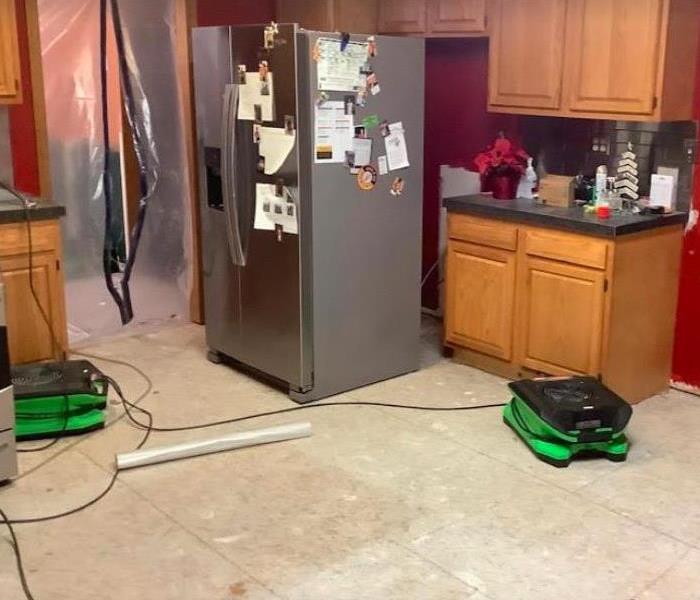Hidden Leaks Can Result In Costly Damages
7/15/2020 (Permalink)
Think back, when's the last time you checked your appliances? You probably can't remember. Unfortunately appliances don't operate like vehicles do. There are no lights that come on to indicate you have a problem. Not knowing if your appliances are actually working properly can cause problems. Appliances that utilize water and are connected to a supply source are prone to leaks, breaks and cracks. Water damage caused by appliances can go unnoticed for weeks, months, and even years before a homeowner notices a problem. And unfortunately at that point, it is too late. That water that has escaped from the appliances have made its way into the walls, floors and baseboards.
Regular inspections of appliances is critical to prevent your home from experiencing costly water damage. Let's take a look at which appliances you should inspect.
- Refrigerator
- We rarely move our refrigerators because they are heavy and it's a hassle. The water supply lines that are connected to the back of our refrigerators are made up thin plastic that can break pretty easily. Check for leaks behind and beneath your refrigerator to ensure there are no hidden issues.
- Dishwasher
- A dishwasher's supply line is just as prone to leaks and breaks as the refrigerator lines are. But the supply line to the dishwasher supply a larger amount of water and are very hidden. Checking the supply line regularly could save you from costly repairs in the future.
- Hot Water Heater
- This forgotten appliance is usually hidden down in the basement closet or in a garage. Hot water heaters hold anywhere from 20 to over 80 gallons of water at a time, and last anywhere from 10 to 15 years. That's a lot of water that you don't want in your home. The seals and pipes on these are certainly susceptible to failure and should be checked for accumulations of moisture.
- Washing Machine
- The supply drain and hose are flimsy and are attached with simple hardware that can easily come loose, crack or disintegrate. Make sure to check the connection and the overall condition of these hoses monthly and replace them every couple of years.
- Air Conditioner
- Every A/C unit should have a drain as well as a safety switch that causes the unit to shutoff when excess moisture pools in the drain pan. If this drain were to malfunction, you’re going to see water appear in places you wish it hadn’t. Each unit and manufacturer are different so we recommend referring to the manual for service and inspection scheduling. A professional HVAC Technician will know what to look for and how it can be repaired.





 24/7 Emergency Service
24/7 Emergency Service
